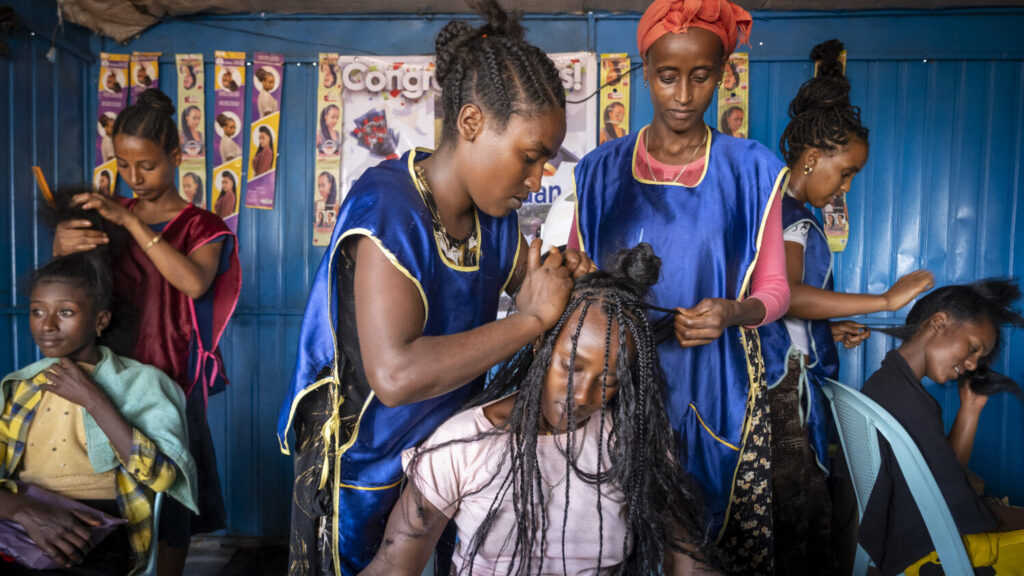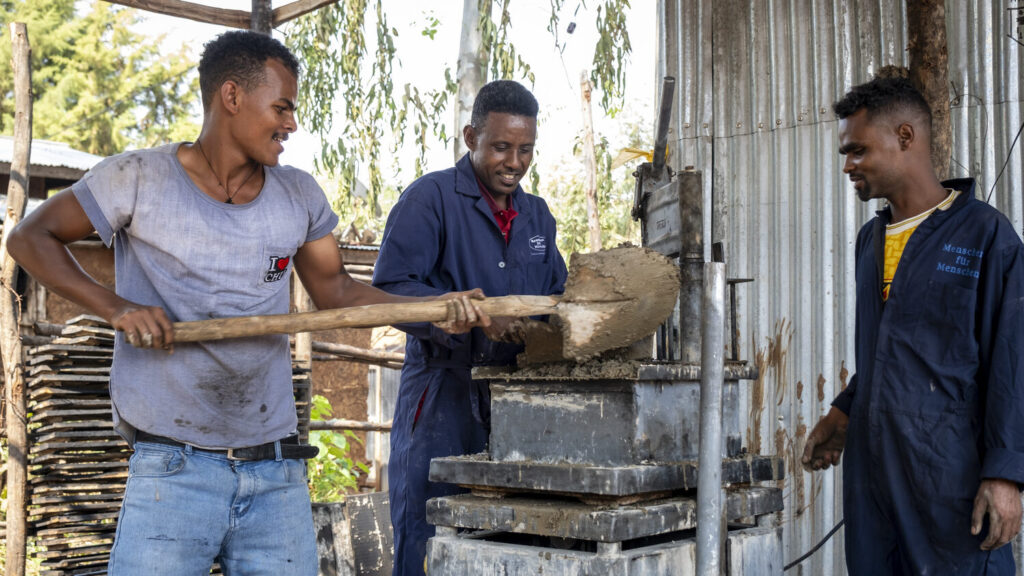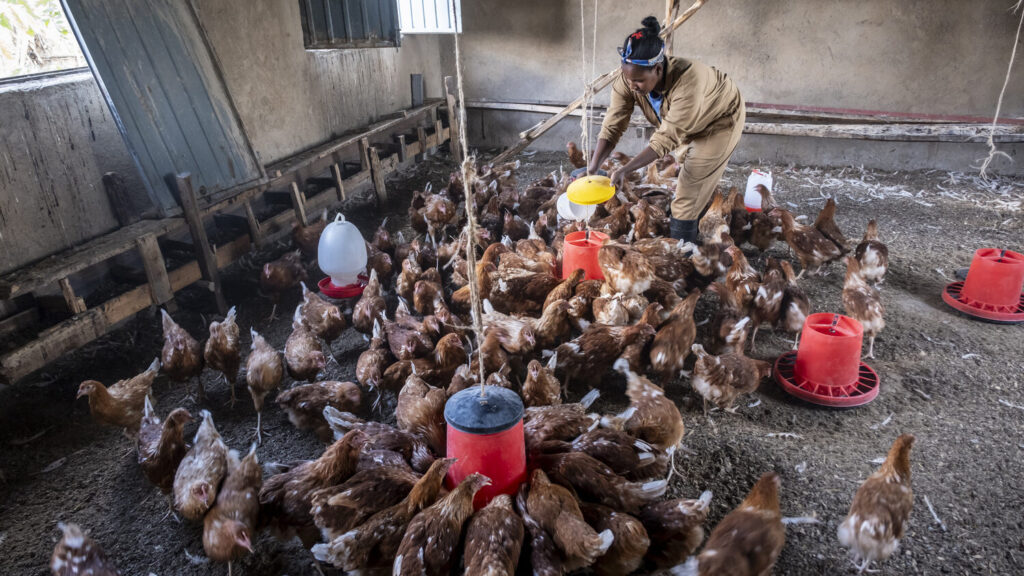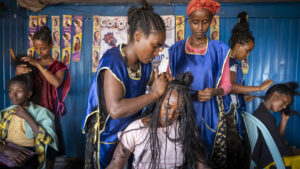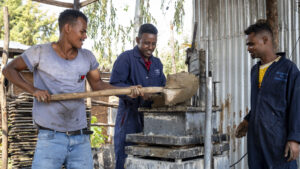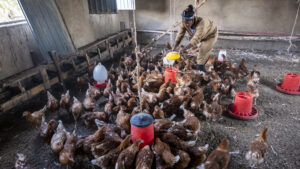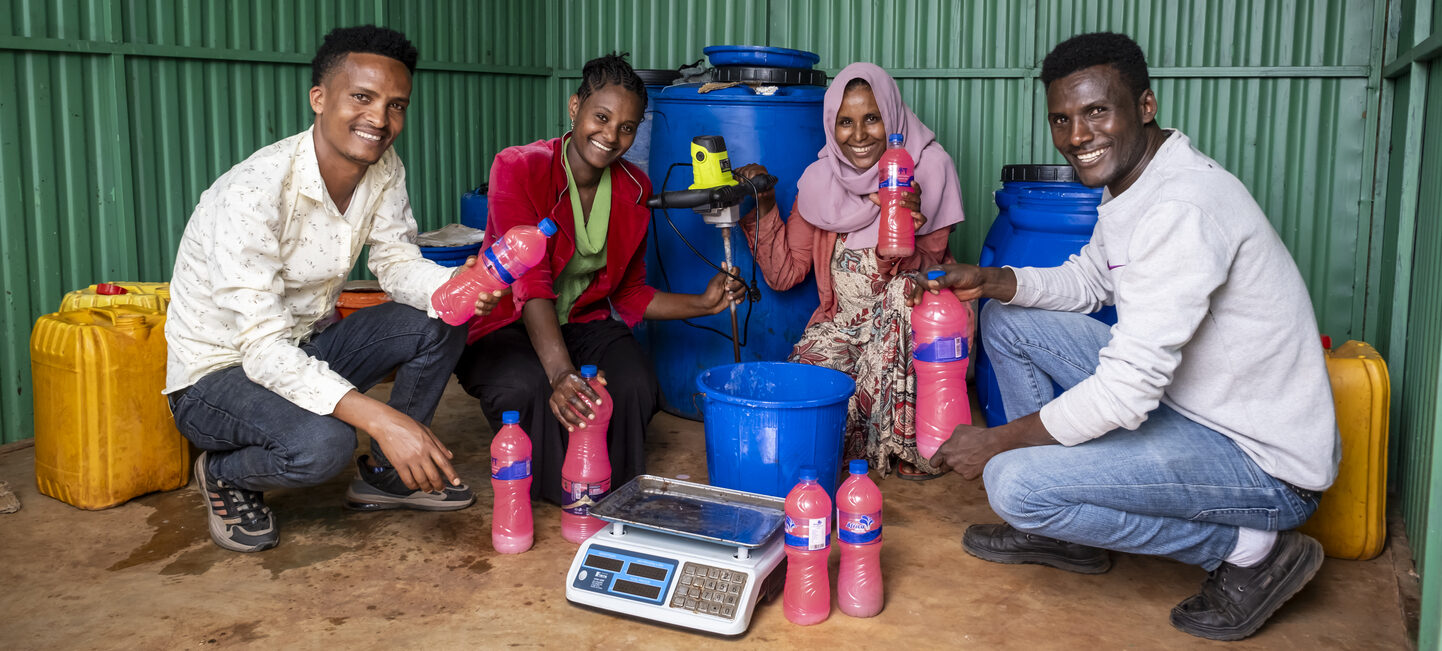
Social development and income
Creating opportunities for a self-determined life
The majority of Ethiopians live off the land – mostly from hand to mouth. The existing arable land has long since become insufficient for all. There is a lack of income alternatives apart from farming. Many of those who have no opportunity to improve their standard of living feel compelled to leave their homeland.
Through its work Menschen für Menschen creates opportunities for development and helps the rural population to secure their livelihood.
Our activities
- Promotion of micro businesses
- Training in improved handicraft (i.e. hairdresser, bakery, tyre repair)
- Abdii Borii children’s home
- Infrastructure (bridges, road construction, stairways)
Promotion of women
Women in rural areas of Ethiopia have many responsibilities but few rights. They often lack the opportunity to earn their own income. They take care of the children and the household. Additionally, it is their responsibility to fetch and carry water, collect firewood, and help with agricultural work. Since 1997, Menschen für Menschen has therefore offered women in our project areas the opportunity to participate in microcredit programs. So far, 31.053 women have participated. Some of them have become successful entrepreneurs who have made a significant contribution to their family’s income – or even provided the majority of it. As a result, their social status within the community has improved significantly.
Combating unemployment among young adults
Ethiopia’s population is characterized by a young age structure. Around 20 percent of Ethiopians are between 15 and 24 years old (source: Word Factbook). Young women and men are another disadvantaged group that has emerged in rural areas. As land for farming is limited, parents can no longer transfer land to their children. In order to prevent these young people from migrating to cities or abroad, job opportunities outside of agriculture must be created. Since 2017, the foundation has been offering young adults the opportunity to set up micro-enterprises in pilot projects. From 2024, Menschen für Menschen will create so-called MSEs – micro and small enterprises – in all integrated rural development projects.
Establishment of micro businesses
The MSEs enable disadvantaged groups – female farmers and unemployed young adults – to set up micro-enterprises. Five people join together to form a group to set up a business. In rural areas these could be businesses in animal husbandry, vegetable growing or the production of wood-saving stoves. In villages and smaller towns, these could be hairdressing salons, oilseed trading, workshops for repairing tires or cell phones, small bakeries or breakfast restaurants. Interested parties receive theoretical training in bookkeeping and business planning and are provided with start-up capital or materials. Groups that require special skills, such as hairdressers or tire repairers, receive additional specialist training.
The start-up has a bank account and is registered with the authorities, who ultimately also monitor the development of the business. The group decides together how to invest potential profits – for example, to open another breakfast restaurant in a neighboring town or to buy more equipment.
